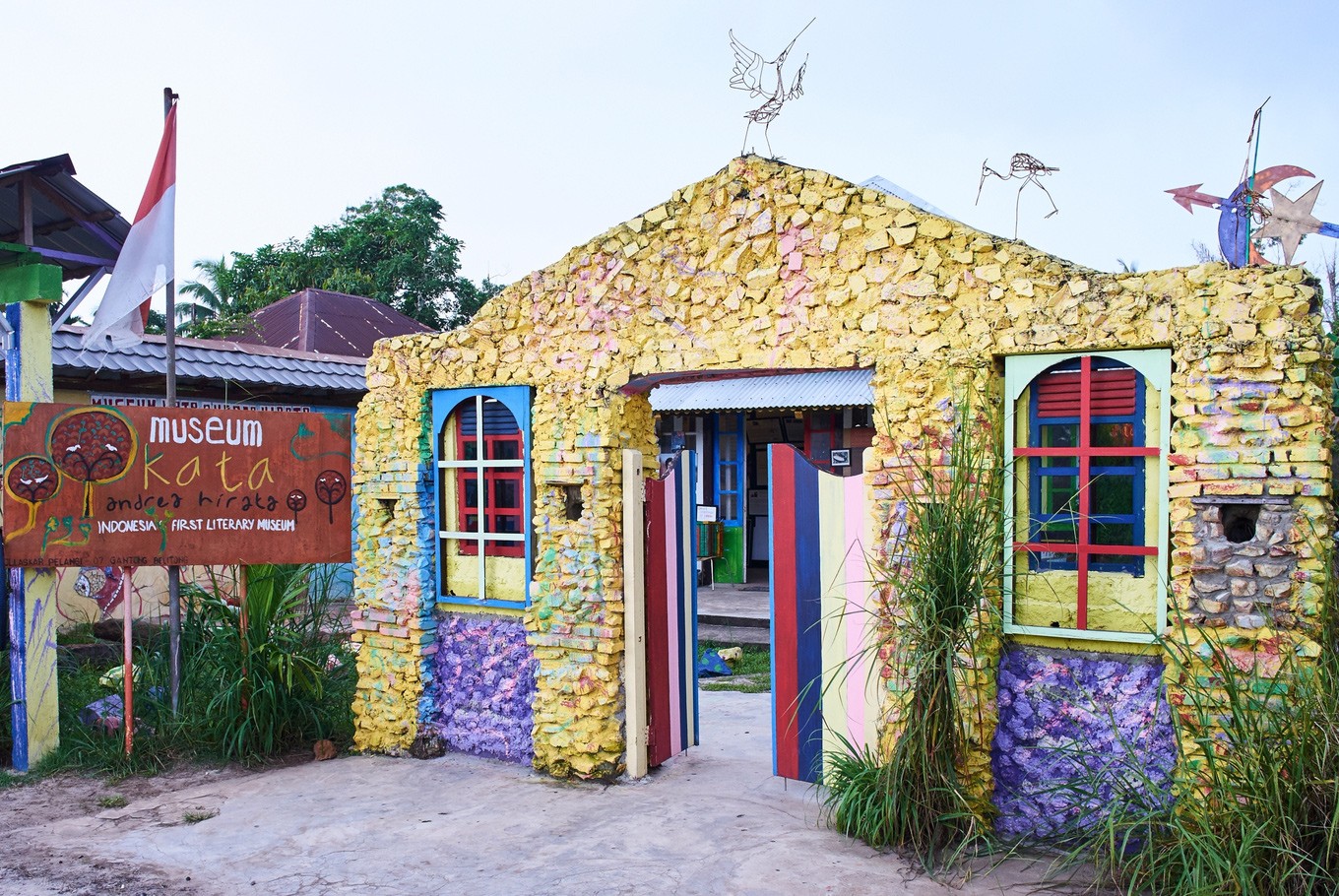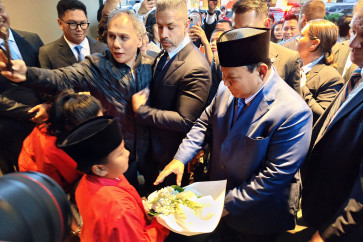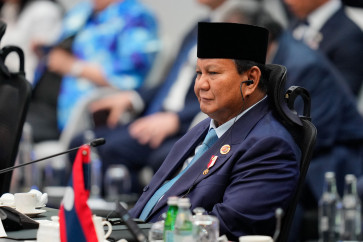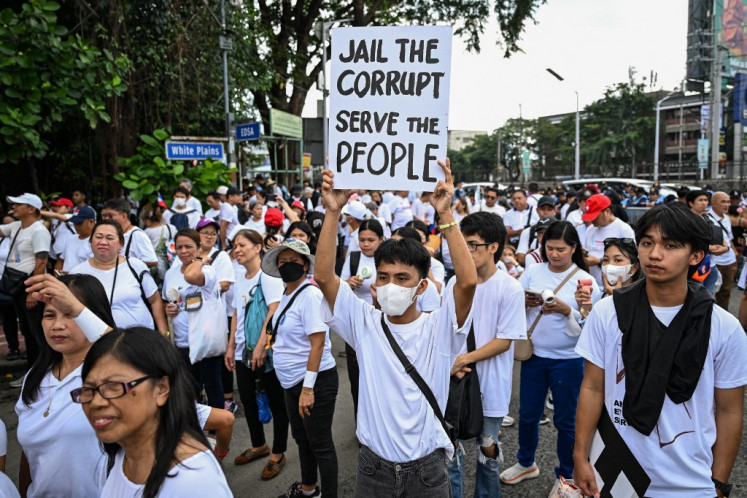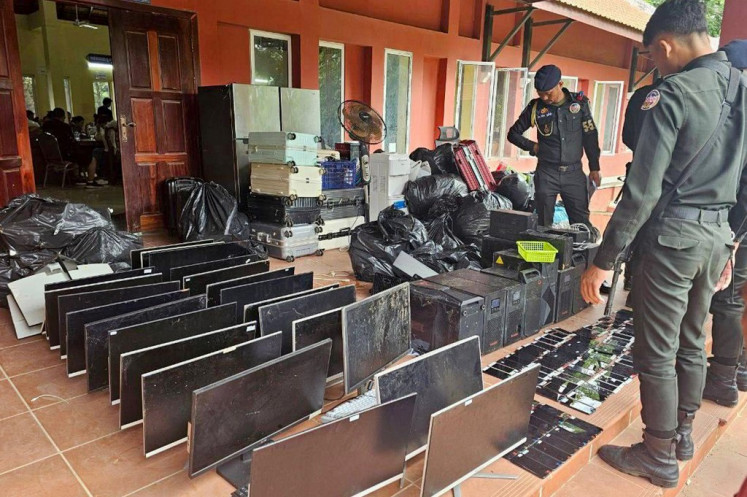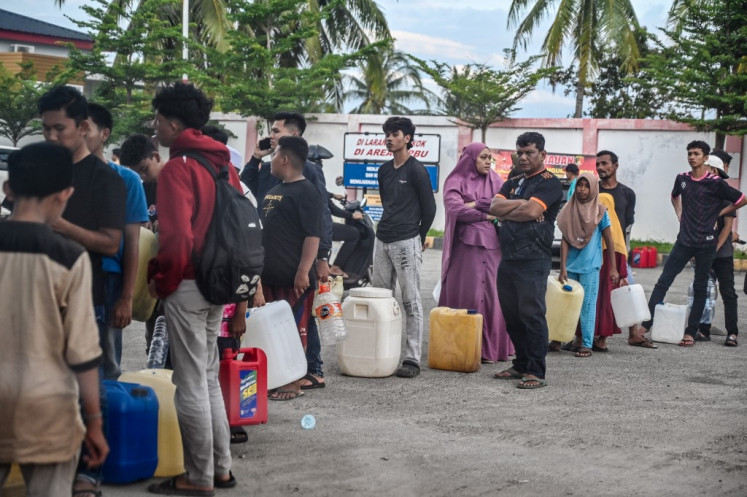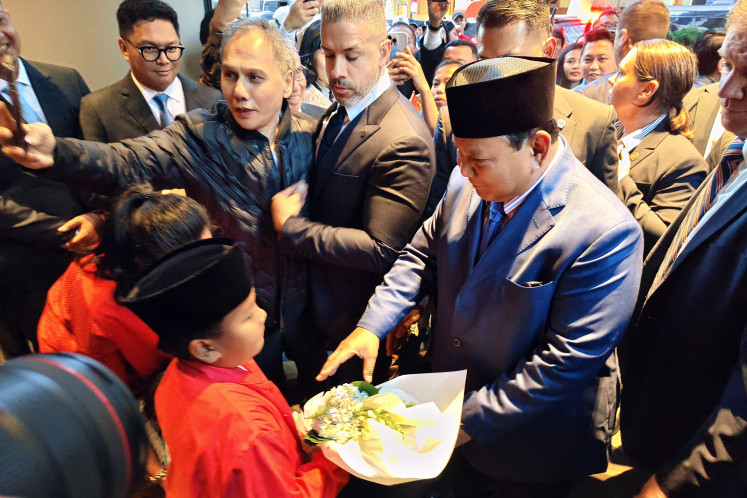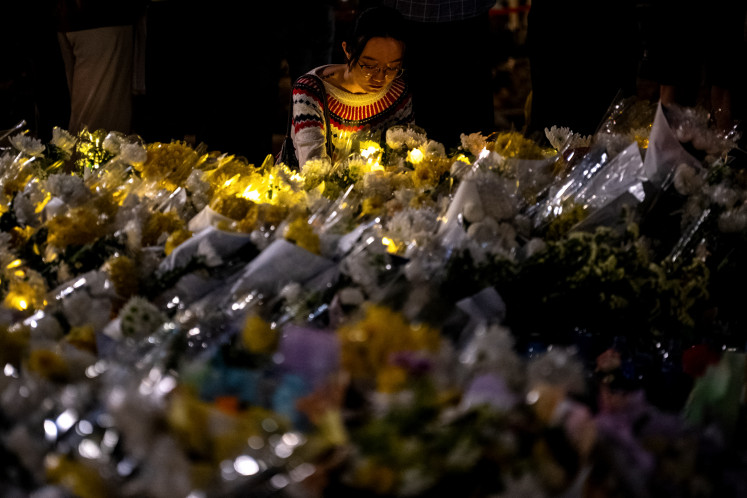Popular Reads
Top Results
Can't find what you're looking for?
View all search resultsPopular Reads
Top Results
Can't find what you're looking for?
View all search resultsLure tourists with stories, not buildings
Roaming through the ruins of Muntok’s largest Peranakan home, I realized that tourism relies on the art of storytelling.
Change text size
Gift Premium Articles
to Anyone
I
n my entire collegiate career, not once did I receive an A for a creative writing course. I delivered my papers on time, with verified data, in an efficient and concise manner. In my graded reports, my professors recognized the content of my papers, but they all hinted at their lack of a certain “je ne sais quoi”, the pull factor. My left-brained self never grasped the essence of this whimsical element until I visited Muntok and learned about tourism.
Located in West Bangka, Muntok had all the hard elements to thrive in tourism: solid infrastructure, pristine beaches and a rich colonial heritage. However, its tourism industry remained stagnant for years. In contrast, there are places with zero natural or cultural resources, such as Singapore, that manage to become global tourism hubs.
Roaming through the ruins of Muntok’s largest Peranakan home, I realized that tourism relies on the art of storytelling. When I laid eyes on this house of the Peranakan or local Chinese ethnicity, I saw a web of dusty items, amounting to a desolate clutter. Only after conversing with the grounds’ caretaker that I found out that these items represented an incredibly rich history.
Suddenly, in my eyes, this clutter became a showcase of priceless vestiges. I found out that the dreary scrolls on the walls were the owner’s prized belongings from China that were brought to Indonesia in an attempt to save these cultural treasures during the Mao Zedong’s Communist Revolution.
I took a closer look into the intricate family tree, and discovered a bewildering family tale that spanned across four generations -- each decade presenting a juicy plot, as well as heartfelt stories. Through the caretaker’s gift of storytelling, I was able to recognize the value of this supposed tourist attraction.
During my trip, the beauty of storytelling was articulated by Hongky Lie, an architect and restauranteur based in West Bangka’s capital. Lie inherited a Peranakan-style home that he converted into one of Pangkal Pinang’s premier restaurants. He admitted to neither knowing everything about his family’s history, nor inheriting family-owned recipes. However, he capitalized on the home’s colonial esthetics, and he created a menu and atmosphere that appealed to visiting “culture junkies.”
For example, West Bangka did not inherit a rich coffee culture. To appeal to coffee-drinking hipsters, Lie mixes market-bought coffee with local delicacies to create a “local” coffee luxury item. In summary, the key to Lie’s success lies on working with local goods and, more importantly, creating attractive rhetoric to attract consumers.
Moreover I also had the chance to chat with a representative from Muntok’s tourism and culture department. Young and passionate about the arts, this official is channeling his passion in his personal project, a story based on Muntok’s historical events.
While my friend may solely view his book as a passion project, I view it as a critical debut to Muntok's tourism development capacities. Taking a cue from Andrea Hirata’s Laskar Pelangi (Rainbow Troop), which brought international fame to the island of Belitung, my friend's book may shed unprecedented light on Muntok. It has the potential to give significance to the events and historical trainings of West Bangka, and attract tourists to experience the story of Muntok.
I urged my friend to promote the art of storytelling, and to create events that institutionalize the practice. De facto, in order for the tourism industry to thrive, the local tourism and culture board must go beyond community building and foster the art of storytelling. This starts by educating locals about Muntok's history and showing the economic potential that storytelling holds.
It is also crucial to foster the culture of storytelling, by sharpening the locals’ capacity to present their history in a compelling manner. Local history may be recounted in verses, weavings, puppets shows, and through various other arts.
With improved storytelling, the return of investment on infrastructure and other public expenditures will increase significantly. A popular story will invite tourists to the island, who in turn will bring a flow of funds to the local economy. Currently, a tourist spends a mere Rp 500,000 (US$ 50) per visit in West Bangka. Despite the new airport, West Bangka only collected Rp 15 million in tourism taxes last year. A best-selling story is of imperative order.
Last, it is of utmost importance to educate people on the value of their story. Laskar Pelangi’s Andrea Hirata sold rights to a foreigner, and now the local population cannot use the book’s brand to attract tourists. If the writer had been able to see how this could benefit the community, he probably wouldn’t sell it. Thus, we must show how important it is for a local community to take ownership of their local history, and learn how to harness it.
Through my trip to Muntok, I realized that hard content and data matter, but they are not human drivers, for creative writing professors and tourists alike. Rather, humans are driven by emotions and moved by stories. In the case of Muntok, its rich heritage and natural resources make the township a prime candidate for tourism. However, Muntokians must create a story that will give significance to these elements, and to deliver a best-selling touristic experience.
***
Having lived in Asia, the South Pacific and the Americas, the writer is a travel enthusiast and public policy junkie, pursuing a double degree in economics and International Affairs at the George Washington University. If not scribbling away in her Moleskin, Nabila can be found food-venturing in Washington DC's multi-ethnic Adam Morgan or queuing for the newest Smithsonian exhibit.
---------------
We are looking for information, opinions, and in-depth analysis from experts or scholars in a variety of fields. We choose articles based on facts or opinions about general news, as well as quality analysis and commentary about Indonesia or international events. Send your piece to academia@jakpost.com.

